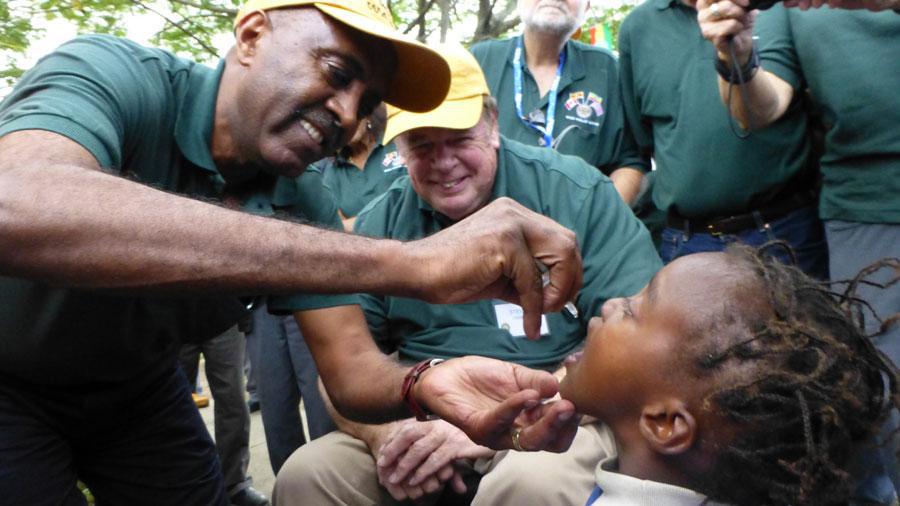The fact that no new cases of wild poliovirus have been detected in Nigeria points to the improved surveillance and rapid response protocols Rotary and its Global Polio Eradication Initiative partners have established, particularly in insecure and inaccessible areas,” said Michael K McGovern, chair of Rotary’s International PolioPlus Committee.

“While this progress is promising, it’s time to redouble our efforts so we can continue to maintain the political and financial support necessary to end polio for good.”
While significant strides have been made against the paralysing disease, wild poliovirus is still a threat in parts of the world, with 10 cases in Afghanistan and three cases in Pakistan this year so far. As long as a single child has polio, all children are at risk, which underscores the need for ongoing funding and political commitment to eradication.
To support polio eradication efforts in countries where polio remains endemic, Rotary is allocating the majority of the funds it announced to Afghanistan ($22.9 million), Pakistan ($21.7 million), and Nigeria ($16.1 million).
Further funding will support efforts to keep 12 vulnerable African countries polio-free:
Cameroon ($98,600); Central African Republic ($394,400); Chad ($1.71 million); Democratic Republic of the Congo ($10.4 million); Guinea ($527,300); Madagascar ($690,000); Mali ($923,200); Niger ($85,300); Sierra Leone ($245,300); Somalia ($776,200); South Sudan ($3.5 million); Sudan ($2.6 million)
Africa will also see $5.8 million in funding for surveillance activities and $467,800 for technical assistance.
Additional funding will go to Bangladesh ($504,200), Indonesia ($157,800), Myanmar ($197,200), and Nepal ($160,500), with an additional $96,300 funding surveillance in Southeast Asia.
The remainder of the funding ($6.6 million) will go to the World Health Organization (WHO) for research activities.
Rotary has committed to raising $50 million a year to be matched 2-to-1 by the Bill and Melinda Gates Foundation, yielding $450 for polio eradication activities over a three-year period.
To date, Rotary has contributed more than $1.8 billion to fight the disease, including matching funds from the Gates Foundation, and countless volunteer hours since launching its polio immunisation programme, PolioPlus, in 1985.
In 1988, Rotary became a core partner in the Global Polio Eradication Initiative with the WHO, UNICEF, and the US Centers for Disease Control and Prevention.
The Gates Foundation later joined. Since the initiative launched, the incidence of polio has plummeted by more than 99.9 per cent, from about 350,000 cases in 1988 to 22 confirmed in 2017.
Source: reliefweb





